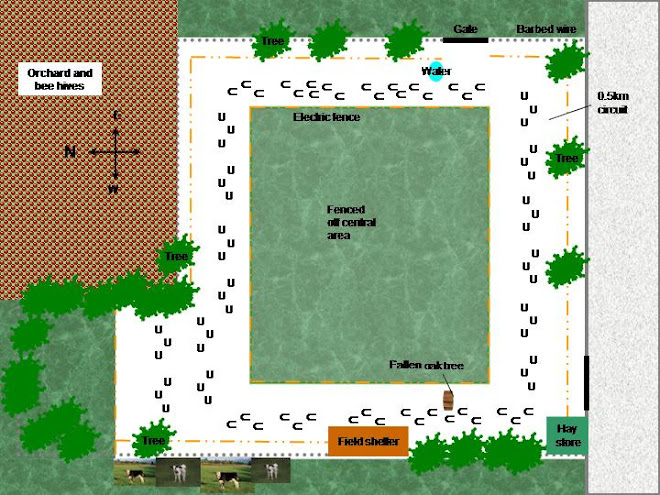This post as are all others is largely based on my own personal experience. I deal with horses in the UK; an environment declared by some vets as unsuitable for barefoot horses because it is so wet and has such a high proportion of overly sugary grazing. Fortunately all the successful barefoot performance horses working in the UK don't understand english or they might be insulted.
I am sure if you have read the rest of this blog you won't need reminding how important diet is. So if your environment grows plants which are disadvantageous for your horse to eat then you will need to take appropriate measures. Either to remove the plants or restrict access to them.
This is slightly controversial but based on my own personal experience I have little hesitation in saying that dirty and/or wet environments can predispose a horse to thrush. Some people are dismissive of thrush, but I would never advise this. Thrush can cause intense pain in the back of the foot which then prevents the horse from using its feet properly. This over time will have significant impacts on the rest of the horse. Just imagine if your own foot was rotting. How would you feel?
A wet environment can also predispose your horse to soft hooves - just like how your nails go when you have soaked them in water for some time, and like your nails hooves will harden up again if allowed to dry properly. Soft hooves are not a problem if you are only working your horse on grass or in the arena. But if you want to exercise your horse over more abrasive terrain then you will need to consider using boots. Personally I would recommend finding some way of letting your horse dry its feet out for several hours of each day.
Taking my own horse as an example. Theoretically Grace has very little chance of being successful barefoot. Grace is:-
- Living in the UK on wet clay
- A warmblood X - a breed often disparaged for its bad feet
- Laminitic and is suspected of having EPSM
- Kept at livery
- Very sensitive to vaccinations and wormers
On arrival her feet were in very poor condition. Now they are like granite; when being trimmed her hooves break tools which cut through other horses hooves like butter. She is not special, but she does come in overnight (winter) into a dry stable with a very clean bed and I feed a 'barefoot diet'; which is equally suitable for shod horses and is great for laminitics. Grace is also exercised daily, even if only a little and thrush is not allowed.
So environment can provide challenges but for most of us, with some thought and much determination, the worst of them can be overcome. Good luck! :-)








1 comment:
I appreciate this post! The last couple of weeks have been very wet and muddy in my part of Canada and I was concerned that these conditions might impact my horse's hoof health. I have to say that my horse's feet look pretty good and are hard as rock. He comes in every night, his bedding is cleaned every day and our lessons are in sand, so his feet do get to dry out. Thanks for the sanity check!
Post a Comment